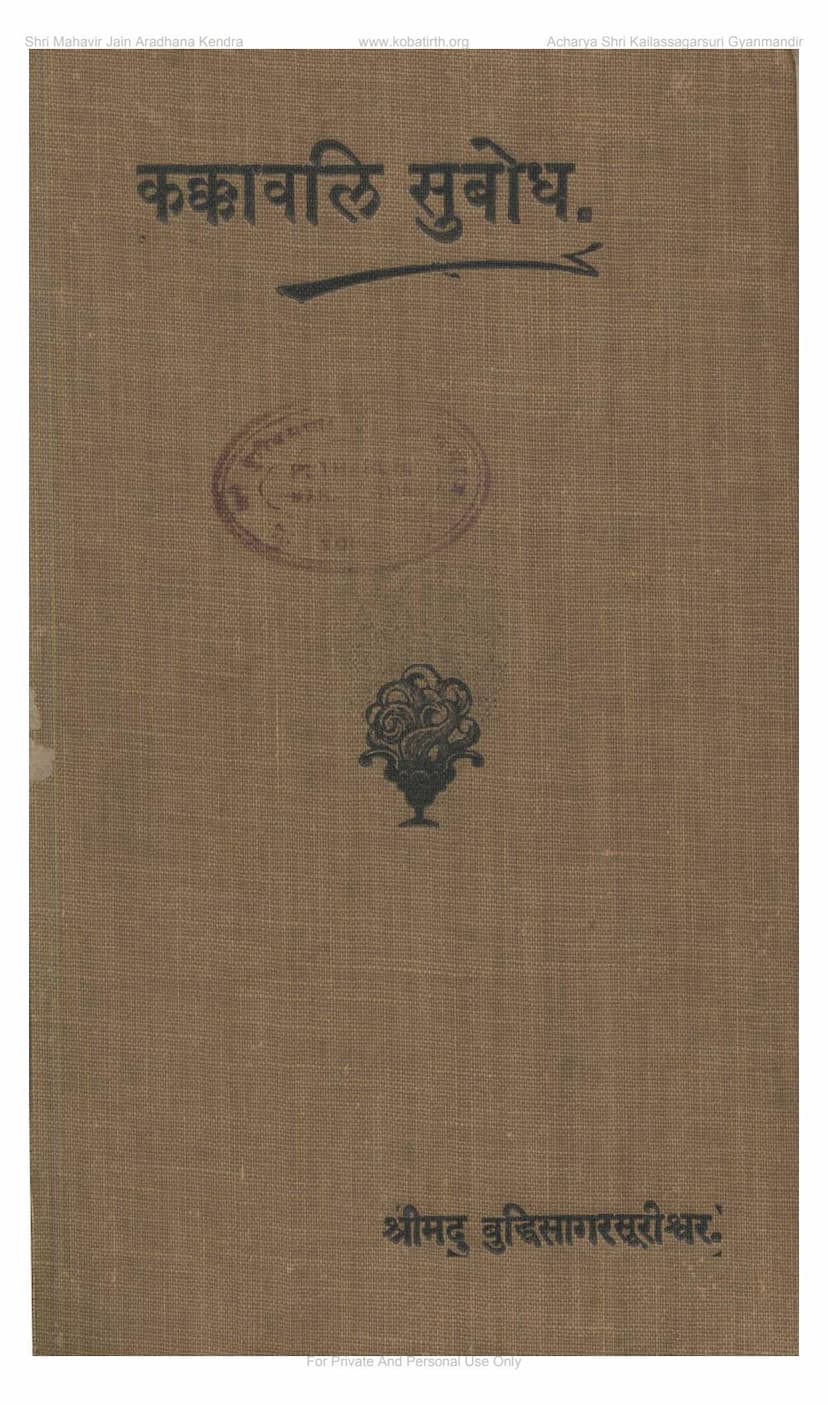Kakkawali Subodh
Added to library: September 2, 2025

Summary
The book "Kakkawali Subodh" authored by Buddhisagar is a comprehensive Jain text published by Adhyatma Gyan Prasarak Mandal. It is described as the 106th publication in the Shrimad Buddhisagar Suri Granth Mala. The book was first published in Vikram Samvat 1982 (2452 Veer Samvat, 1925 AD) with a print run of 1000 copies.
The book is presented as a profound and valuable work, written by the revered Acharya Buddhisagar Surishwarji, who was a scholar, yogi, and spiritual guide. The author emphasizes that the book was completed during Acharya Buddhisagar Surishwarji's final days, with the last part being written and revised even in his weakened state, reflecting his lifelong dedication to spiritual literature.
Key Themes and Content:
- Spiritual and Ethical Guidance: The book delves into high principles of spiritual knowledge, yoga, and philosophy, presented in a simple and accessible language. It aims to guide householders and spiritual seekers alike.
- Comprehensive Coverage: "Kakkawali Subodh" is characterized as a dictionary or lexicon of good conduct and spiritual knowledge. Each letter of the alphabet, from 'A' to 'N' (and subsequent letters), serves as a starting point for extensive discussions on various topics.
- Diverse Subject Matter: The text covers a wide range of subjects, including:
- Spiritual Philosophy: Self-knowledge, the nature of the soul (Atman), theistic principles, meditation, and the path to liberation (Moksha).
- Ethical Principles: Truthfulness, non-violence (Ahimsa), forgiveness, contentment, detachment, good conduct, and ethical behavior in daily life.
- Social and Moral Issues: The book addresses social issues like child marriage, the prohibition of selling girls, and the importance of spiritual and character development.
- Daily Life and Practices: It offers guidance on healthy living, diet, exercise, cleanliness, and the duties of householders and ascetics.
- Jainism and Spirituality: The text discusses various aspects of Jainism, including the duties of Shravakas (lay followers) and Sadhus (monks), the principles of Anekantavada (many-sidedness), and the importance of remembering God and the Guru.
- Yoga and Spiritual Practices: It touches upon practices like Ajapa Jap (uninterrupted meditation) and the significance of inner sound.
- Historical and Cultural References: The book includes examples from Jain history and mentions the practices of different cultures and religions to illustrate points.
- Critique of Bad Practices: It strongly condemns negative traits like anger, greed, ego, hypocrisy, falsehood, and unethical behavior.
- Author's Style and Expertise: The introduction highlights Acharya Buddhisagar Surishwarji's immense knowledge, descriptive ability, scholarly depth, profound spiritual experiences, and mastery of both worldly and spiritual principles. His writing is noted for its clarity, simplicity, and poetic quality, making it understandable to both learned scholars and ordinary readers, including children.
- Devotion to Gurus: The book begins with salutations to Lord Mahavir and spiritual preceptors, particularly Shri Sukh Sagarji Maharaj, indicating the importance of Guru devotion in Jain tradition.
- Literary Merit: Acharya Buddhisagar Surishwarji is praised as an excellent poet who enriched the Gujarati language with his numerous spiritual and historical works. "Kakkawali Subodh" is seen as a significant addition to his literary contributions.
- Focus on Practicality: The book aims to provide practical guidance for spiritual upliftment and moral improvement in daily life, stressing the importance of applying these principles in action.
- Lifelong Dedication: The introduction emphasizes the author's unwavering commitment to writing for the welfare of the world until his last breath, completing over 108 significant works.
In essence, "Kakkawali Subodh" is a comprehensive spiritual and ethical guide that draws upon Jain philosophy and yogic principles, presented through a unique alphabetical structure, to impart wisdom and moral instruction for a meaningful life.